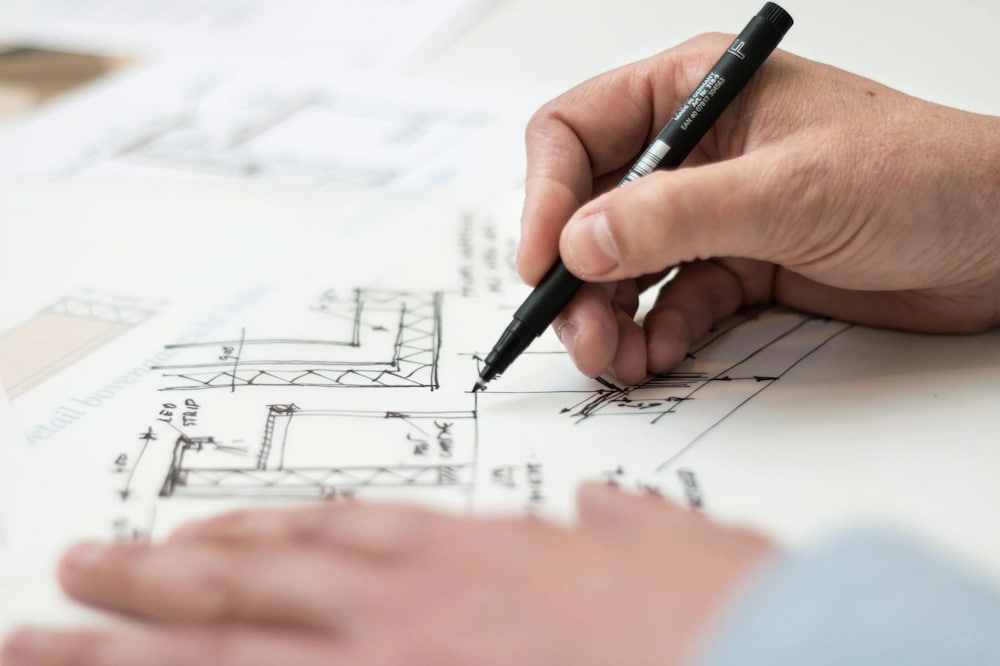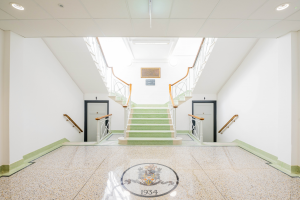When the tender process finishes, the real work can begin. So, what happens during the post-tender stage in construction? That’s what we’ll be exploring today, so read on to learn about the post-tender process.
Post-tender Negotiations
Once tenders have been submitted, but before the contract has been awarded, there will be time for post-tender negotiations. This is essentially a discussion to refine and optimise bids, covering aspects such as:
- Pricing – For example, discussing ways to reduce costs or gaining an understanding of the pricing structure.
- Contractual terms – For example, standard contracts such as JCT (Joint Contracts Tribunal) and NEC (New Engineering Contract).
- Service Delivery – For example, looking at KPIs and SLAs, delivery schedules and quality assurance.
These negotiations ultimately ensure that the buyer gets the most value for money, and ensure that both the supplier and the buyer are on the same page, and satisfied with the agreement. Using KPIs during the post-tender stage can increase procurement performance by 72%, which shows just how beneficial these negotiations can be.
As a buyer, you may request negotiations for a range of reasons, from requesting more information about the pricing structure to making amendments to the bid proposal.
It’s important to note that EU rules state that you can’t re-negotiate contracts once agreed, so ensure that you get all of the negotiations out of the way before the contract is formally offered.
Contract Award
Typically, the contract will be awarded based on criteria such as the Most Economically Advantageous Tender (MEAT).
When both parties are happy with the terms, the contract will be formally awarded – and both parties will sign a legally binding contract.
The Procurement Act 2023, that will now come into play 24th February 2025, provides for a standstill for 8 working days from the day that the contract award notice is published. This gives time to finalise the terms and conditions.
The contract will typically include:
- Terms and conditions
- Scope of the work planned
- Timelines
- Payment schedules
During this standstill period, the contractor should carefully review the contract to ensure that the terms are completely understood.
Pre-Construction Planning
When the contract has been awarded and signed, the pre-construction planning can begin. Projects with thorough planning have a much higher chance of meeting their KPIs – the highest 1/3 of projects in terms of planning completeness had an 82% chance of meeting their objectives, demonstrating that effective planning leads to successful completion.
Pre-construction planning can help to:
- Define the scope and schedule
- Identify potential risks
- Boost efficiency
- Ensure all parties involved are on the same page
- Ensure resources are allocated efficiently
The planning will typically begin with a project kickoff meeting. At Procure Partnerships Framework, we act as conduit between contractor and client, helping the client agree on KPIs and the social value plan with the contractor. Both contractor and client can manage and observe their projects through the bespoke digital project delivery tool at Compliance Chain.
This is also the time for a thorough site analysis, examining the conditions of the site and obtaining the necessary permits. This means researching building codes and zoning laws – and submitting site plans to the local authorities.
During this time, a risk assessment must also be conducted to identify potential risks and create contingency plans.
Pre-Construction Services Agreement (PCSA)
Two-stage projects will enter a Pre-Construction Services Agreement (PCSA). This is a contractual agreement outlining the services that will be provided pre-construction.
During the PCSA stage, the contractor may begin enabling works on site whilst other packages are being determined and priced. This means that they can begin preparing the site and laying down the groundwork whilst later aspects are still being finalised.
The parties involved will also determine how the project will be monitored throughout, agreeing on reporting and KPIs. During this stage, as mentioned above, the client and contractor may also agree on social value targets – for example, apprenticeships or community initiatives etc. You can track and manage social value through Compliance Chain, and streamline the reporting process to demonstrate the positive impact your project has had on the local community.
Mobilisation
Now it’s time for mobilisation – the contractor will begin to mobilise all resources and prepare to begin working on the site.
Some key activities that take place during the mobilisation stage include:
- Allocating resources – Assigning personnel to the project and ordering the right supplies.
- Setting up the site – Sorting the utilities (such as water or electricity) as well as temporary facilities such as offices or storage spaces.
- Setting up reporting systems – As well as finalising agreements and acquiring relevant licences.
- Conducting pre-construction meetings – Creating work schedules and plans with suppliers, subcontractors and stakeholders.
- Implementing safety measures – Ensuring personnel are trained and there are quality control measures in place.
This can take anything from several weeks to several months, depending on the complexity of the construction project. This preparation stage can ensure projects are delivered in a timely manner whilst sticking to the proposed budget.
The Project Begins
When all the planning, preparations and negotiations are complete, the construction work can finally begin, according to the agreed-upon schedule and terms of the contract.
The physical building work can start and the project management systems will oversee the day-to-day operations, from managing resourcing to tracking progress.
Monitoring Project Performance
With the new changes outlined in the Procurement Act 2023, the monitoring of supplier performance and KPIs will be essential.
At Procure Partnerships Framework, we monitor our contractors’ performance against the predetermined KPIs. We can ultimately ensure that they deliver as promised during the bid/ tender stage of the construction project. Organisations that use project management practices waste 28 times less money than organisations that don’t. Managing and monitoring your project after tender is an absolute must for project success, and it’s something we can help with.
Streamlining And Supporting You With The Tender Process
Are you looking for support to streamline the post-tender process? At Procure Partnerships Framework, we will provide you with ongoing support throughout the lifecycle of your project.
We can provide you with a pre-approved list of contractors who have undergone thorough vetting, saving you time and resources searching for and evaluating contractors. Utilise our bespoke evaluation tools tailored to the specific requirements of your project.
With Procure Partnerships Framework, you can have peace of mind knowing that the tender process – including post-tender – is all above board. We ensure compliance with procurement regulations throughout the entire process.
Download A Procure Partnerships Framework User Guide today to get started.



